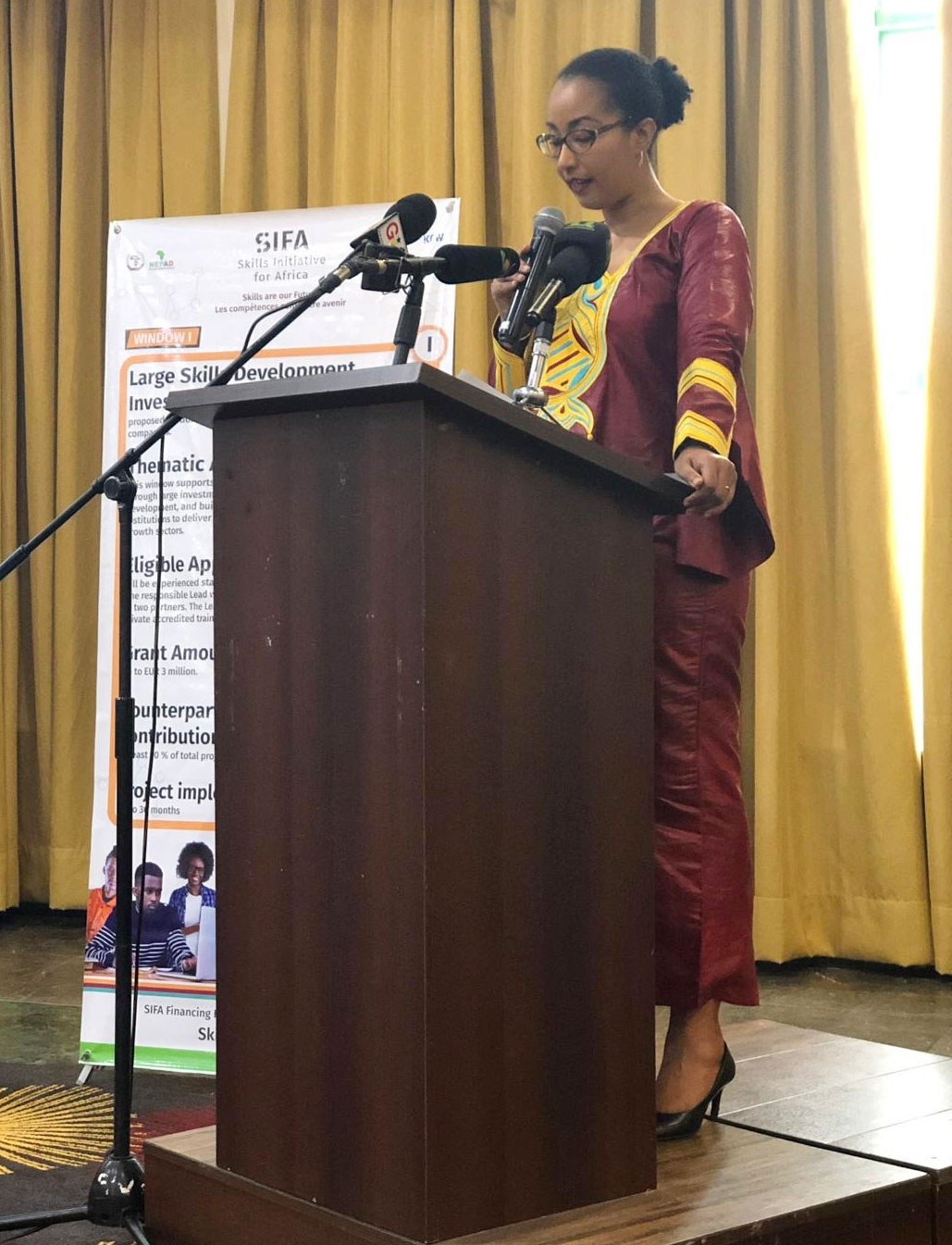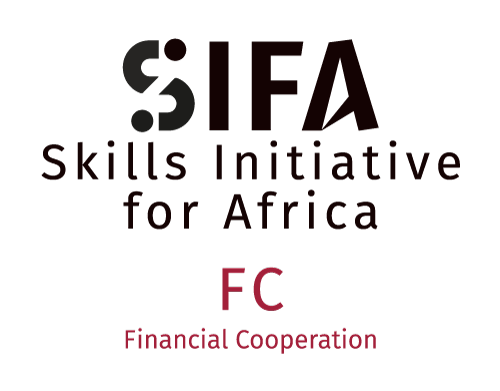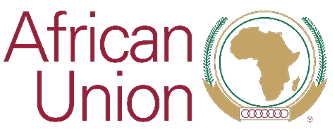
Speech by Mrs. Fati N'Zi- Hassane , Director / Head of the "Skills and Employment for Youth" Program of the African Union Development Agency AUDA/NEPAD on the occasion of the launch of the call for proposals under Funding Window I of the Skills Initiative for Africa (SIFA) in Accra, Ghana on 4thApril2019
Hon. Madam Gifty Twum Ampofo, Deputy Minister of Education in charge of TVET, His Excellency Mr. Christoph Retzlaff, Ambassador of the Federal Republic of Germany in Ghana, Chief Director of the Ministry of Education,
Distinguished invited guests,
The Media,
Ladies and gentlemen:
I am very pleased to be in the beautiful city of Accra for this long-awaited event and to address these few words on my behalf and on behalf of the Chief Executive Officer of AUDA/NEPAD, Dr. Ibrahim Mayaki.
Hon. Minister, Ladies and Gentlemen:
Allow me to take this opportunity to brief you on some of the institutional changes regarding NEPAD, following the recent decisions of the 55 African Union Heads of State. During the year 2018, our Heads of State agreed on the transformation of the NEPAD Agency into the "African Union Development Agency” (or AUDA), with a clear mission to support the 55 African states in the implementation of the continental development blueprint known as: "Agenda 2063: The Africa We Want". This document consists of a set of activities that include the coordination and implementation of development programs, technical assistance, and capacity building.
Excellency, Ladies and gentlemen,
As you may know, the NEPAD Agency or AUDA is involved in areas as diverse as infrastructure development, regional integration, agriculture and the creation of regional markets, including the emergence of an African pharmaceutical industry. All these activities and preoccupations respond to the shared concern of Africa and Africans to see the emergence of a strong, united and sovereign continent.
Pursuing this vision, Africa can rely on the great potential formed by its youthful population.
A study conducted by NEPAD in 2015 found that by the year 2030, nearly 440 million young people will find themselves on the African labor market. These young people will then be between 15 and 35 years old, which means that they are already born and are here with us. This is not a potential or possible scenario. It is a reality that we must tackle today. If they are educated, prepared and given the right opportunities, these young people have the potential not only to contribute to achieving the Africa we want, but also to place our continent at the center of the global economic system. But if nothing or too little is done for these young people ... we are facing a time bomb that in many countries may cancel all the efforts and achievements so far accomplished.
Africa and global agencies such as UNESCO have all recognized technical and vocational education and training (TVET) as a powerful vehicle for equipping young people with employment and entrepreneurship skills. The Agenda 2063 I mentioned earlier calls for a paradigm shift towards transformative education and training systems to develop the knowledge, skills, research, innovation and creativity needed to secure the future of our young people and Africa as a whole.
To unleash the potential of TVET, the African Union has developed a "Continental TVET Strategy" which provides a comprehensive framework for skills development and youth employment. Nevertheless, a shortage of qualified teachers, scholarships and adequate infrastructure, as well as the lack of practical vocational training programs and technical and didactic equipment, still constitute significant obstacles to the proper implementation of this Strategy.
It is in the light of these challenges that the African Union and the German Government have come together to launch and promote the Skills Initiative for Africa (SIFA). As part of SIFA, a funding mechanism for skills development has been put in place. The facility is implemented by the African Union Development Agency, AUDA / NEPAD, with funding from Germany through KfW. The funding mechanism is designed to respond coherently to the common challenges of skills development in Africa by developing and disseminating local best practices and supporting innovative and sustainable approaches, thereby promoting employment and the spirit of entrepreneurship among young people, women and other vulnerable populations. For the moment, the countries benefiting from the SIFA financing mechanism are Cameroon, Ethiopia, Ghana, Kenya, Nigeria, South Africa, Togo and Tunisia.
Ladies and gentlemen,
The purpose of this ceremony is to officially launch the SIFA initiative in Ghana and the Call for Proposals for Funding Window 1 for large skills development investment projects proposed by Ghanaian training providers, both public and private, in partnership with enterprises.
The expectations are particularly high for Ghana because of the particular interest of Ghana in promoting TVET. We stand ready to support Ghana in its TVET development agenda to enhance the economic opportunities and employment prospects of the country's youth.
This vision is in line with the strategic goals set by the Government of Ghana make Ghana a world-class centre for skills development, and a leading country in TVET delivery in Africa.
Only very recently, His Excellency, the President of the Republic of Ghana, Nana Addo Dankwa Akufo-Addo stated while presiding the National Conference on Technical and Vocational Education, in Koforidua, in the Eastern region reiterated that “science, technology and technical skills rule industry, and you rule yourself out, if you are not appropriately equipped. Every child must be offered the opportunity to bring out her inherent talents for innovation. It is in the laboratories and workshops that young people get the opportunity to expand their imagination, and develop the skills that would equip them for the modern world”.
We are aware that Ghana has developed a 5-year Strategic Plan for TVET which will lead to the creation of a TVET Service and TVET Council, and a dedicated division of the Ghana Education Service for technical and vocational education, which would have its own Director General.
Such efforts are to be saluted. On behalf of NEPAD, I wish to reaffirm our support to the Ghanaian authorities, but also to all potential applicants for the financing window I of SIFA..
To materialize this support, the SIFA team of experts will deliver later today and tomorrow an informative session giving potential applicants a detailed and precise understanding of the application process, the eligibility criteria and the modalities for the submission of the concept notes that will be used to evaluate the projects submitted.
Allow me, ladies and gentlemen, to provide some details on the projects that will be assessed under funding window 1. As mentioned earlier, this window funds large-scale investment for skills development projects.
Projects must be proposed by Ghanaian training structures in partnership with public or private enterprises. The selected projects will receive a grant of up to 3 million euros. This grant may be used to finance the construction, rehabilitation or extension of training centers or the purchase of modern training equipment. In addition, activities such as the design of training programs, training of trainers and scholarship programs for learners may be funded under certain conditions to be specified during the technical session.
Hon. Minister, Ladies and gentlemen,
The SIFA funding mechanism provides skills development actors with a major opportunity to access significant funding to address weaknesses in the implementation of their skills development strategy, which is often linked to insufficient funding for institutions, inadequate teaching and learning facilities, and teachers lacking practical skills. I hope that training providers will seize this opportunity and submit quality proposals that can be funded.
Excellencies, Ladies and gentlemen,
Our youth dream and the future belongs to them. It is our duty to make this dream of dignity, and fulfillment possible. Let’s maintain our commitment and all together, give our youth the means to achieve this future of which they dream.
Let me end with a quote by Kwame NKrumah, one of Ghana’s greatest leaders and true Pan African champion: "Countrymen, the task ahead is great indeed, and heavy is the responsibility; and yet it is a noble and glorious challenge - a challenge which calls for the courage to dream, the courage to believe, the courage to dare, the courage to do, the courage to envision, the courage to fight, the courage to work, the courage to achieve - to achieve the highest excellences and the fullest greatness of man. Dare we ask for more in life?”
I thank you.




